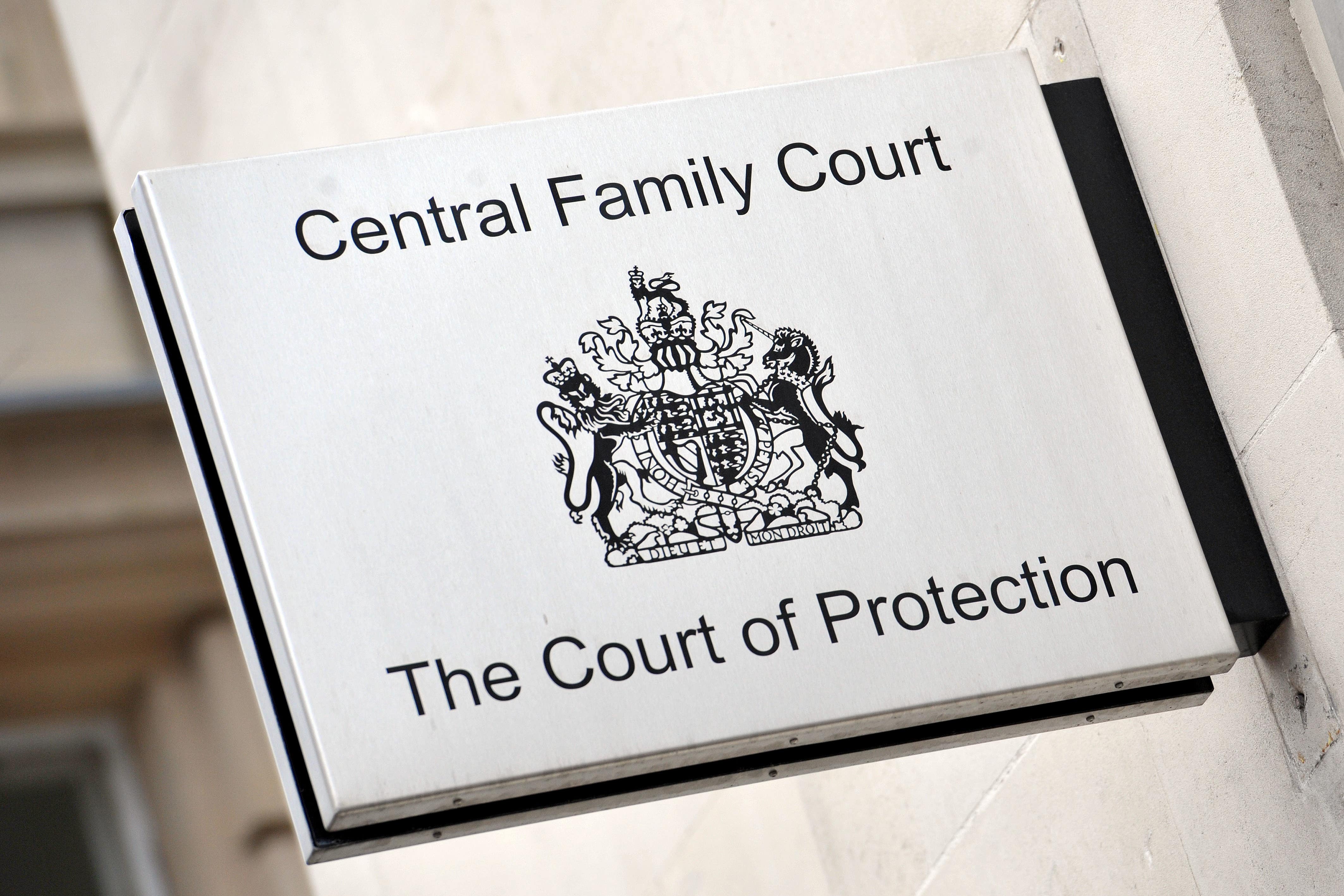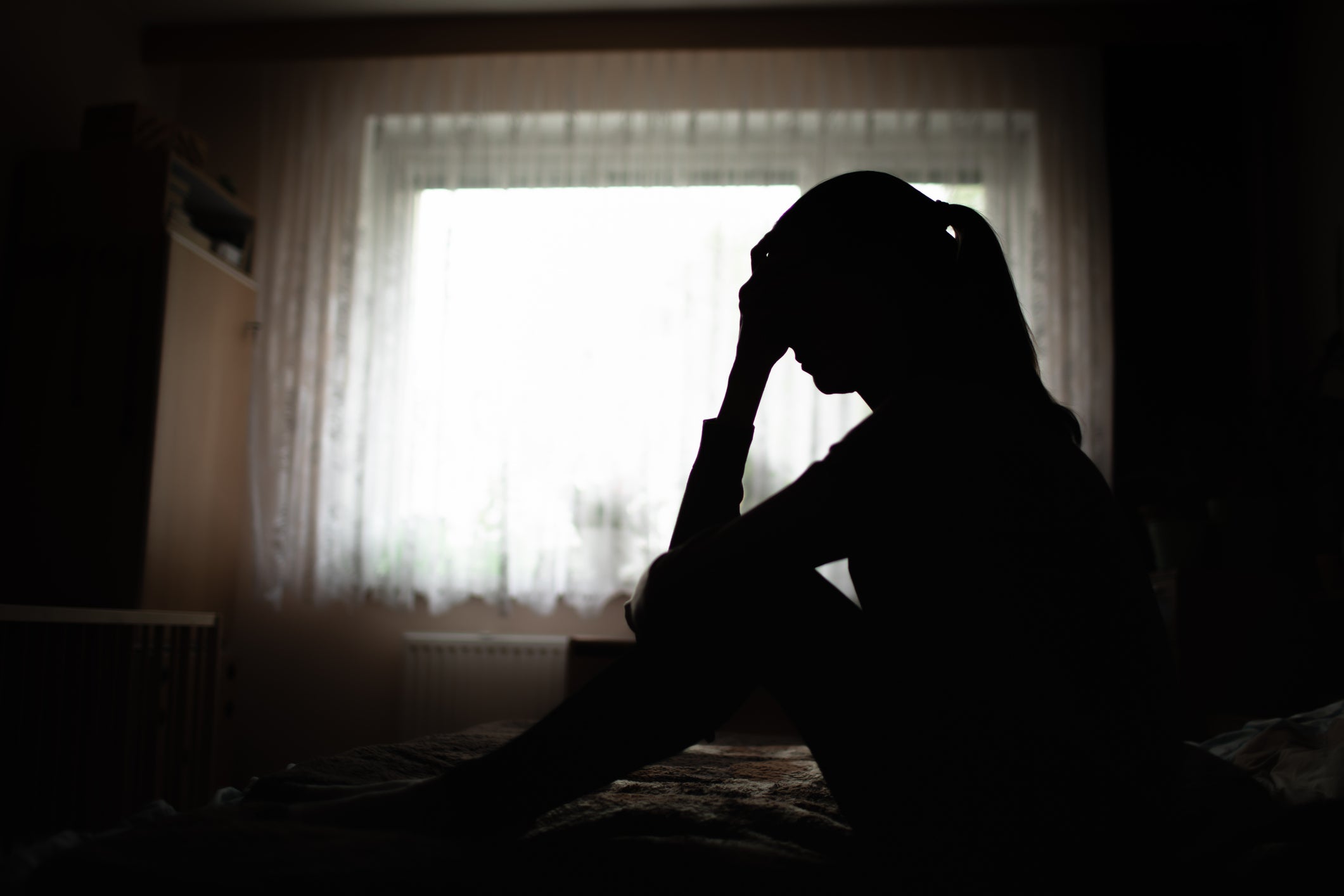‘It’s not like you were beaten’: The horrifying misogyny vulnerable women face from the judge’s bench
Domestic abuse survivors warn that – inside the secretive family courts – they are being ‘retraumatised’ by the legal system, and say judges are the worst offenders. Athena Stavrou reports


Your support helps us to tell the story
From reproductive rights to climate change to Big Tech, The Independent is on the ground when the story is developing. Whether it's investigating the financials of Elon Musk's pro-Trump PAC or producing our latest documentary, 'The A Word', which shines a light on the American women fighting for reproductive rights, we know how important it is to parse out the facts from the messaging.
At such a critical moment in US history, we need reporters on the ground. Your donation allows us to keep sending journalists to speak to both sides of the story.
The Independent is trusted by Americans across the entire political spectrum. And unlike many other quality news outlets, we choose not to lock Americans out of our reporting and analysis with paywalls. We believe quality journalism should be available to everyone, paid for by those who can afford it.
Your support makes all the difference.“Domestic violence is a 50/50 thing.” “It’s not like you were beaten.” “Maybe one day you’ll be able to forget what happened.”
These are just some of the shocking comments that vulnerable women say they have been forced to face in court – from the judges tasked with deciding their families’ futures.
They say the comments show a problem with misogyny in the secretive family courts that not only subjects them to further trauma – often in a courtroom with their abuser present – but leads to rulings that can even leave them legally required to face the perpetrator.
Now campaigners are calling for judges who sit in the family courts to undergo further training so they have a proper understanding of the complexities behind domestic abuse, including coercive control, when deciding on cases including access to and custody of children.
‘Reinforcing the coercive control’
Emma* broke up with her partner after 10 years, during which she says he controlled her money and would bill her for “costs” – including when she was on maternity leave raising their child. He was investigated by police for coercive and financial control but, despite this, she faced hours of questioning over money in court after he brought a case against her.
She said she had been put into debt even before the process started, because the assets under her name meant she did not qualify for legal aid despite them being controlled by her ex-husband. She said: “I have assets on paper, but my ex-husband has trapped the capital in those assets [in property], so I am thousands in the red while he controls the assets that I have no access to, because his name is on the mortgages despite the first property being one I bought many years before I knew him.
“Initially his barrister spent a lot of time attacking me on the finances and the money. He focused on the fact that [my ex-husband] was paying for things while I was on maternity leave. So it’s reinforcing the coercive control, it’s reinforcing that you should somehow be grateful that he’s controlling the money.
“The judge was not challenging things that should have been challenged, such as victim-blaming from my ex-partner’s barrister and reinforcement of outdated and sexist attitudes. They were quite happy to just take my husband’s word for everything.
“I was attacked by a barrister for four-and-a-half hours, and the trauma just came right up to the surface that entire time.”
‘The system is abusing them’
A 2020 report published by the Ministry of Justice found that the courts were putting domestic abuse victims and their children at risk of additional harm yet little has been changed since.
Family court cases, which often involve parental disputes concerning the upbringing of children, are anonymised and closed to the public, placing a shroud of secrecy around proceedings. But campaigners say this is also leading to a lack of accountability.
Solicitor Rachel Horman-Brown, who has worked within the family courts for 30 years, said domestic abuse victims face a “lottery” when it comes to who hears their case.
“Some clients feel effectively the system is abusing them and colluding with the perpetrator or minimising the abuse,” she said.

The lawyer said that judges often avoid investigating domestic abuse as it takes up time and resources in a stretched legal system.
“While official guidance has caught up and has recommend that the court takes [domestic abuse] seriously, the reality isn’t quite there,” she said.
“It’s sad we have a system that which judge your case gets put in front of will change the outcome.”
Ms Horman-Brown said more training needs to be offered to judges to deal with domestic abuse.
“This infects all participants within the family system. Judges are the top of that pyramid of power within it,” she said.
“For the judge to make a comment the victim feels is unfair or minimising abuse, hurts so much more than if it was said by a lawyer or social worker.
“That person wields so much power and it really is terrifying for victims if they feel judges don’t understand domestic abuse. It’s something they find really traumatic.”
‘Where can you feel safe?’
Following a decade-long abusive relationship, Sally* was taken to court by the father of her child for visitation rights.
The 31-year-old informed the judge of his abusive past and provided evidence. She requested an investigation but says the judge told her it would have to be shelved “because she didn’t think it was fair”. She added: “What does she mean it’s not fair? It sounded like she didn’t believe me. He did this to me for 10 years, what makes you think he wouldn’t do it to my son?”
She added: “Because she dismissed the abuse, I now have to call him every week and I myself have to drop my son off to him every six weeks.
“It makes me feel sick every time. My stomach turns, I absolutely hate it.”

A campaign launched by Riverlight – which provides support for abuse survivors – has brought to light testimony from victims of their experience during family court proceedings. Survivors were invited to submit testimonies, which also included judges rolling their eyes at mentions of gaslighting and saying: “If you are so afraid of him and we are to believe what you’ve said, how can you sit near him in court?”
The Judicial College, which is responsible for training of judges, said all family judges and magistrates complete an induction and training that covers domestic abuse.
But Riverlight founder Roda Hassan is calling for more to be done. She said: “Victims and survivors constantly tell us that they often feel more abused and victimised by the court system itself than the perpetrator. If you can’t feel safe in a court of law where this happens, then where can you feel safe?”
For help or support contact the National Domestic Abuse Helpline, which is open 24/7 365 days per year on 0808 2000 247, or go to its website at www.nationaldahelpline.org.uk.
For more information on Riverlight, visit https://www.riverlight.org.uk/.
*Names have been changed.
Join our commenting forum
Join thought-provoking conversations, follow other Independent readers and see their replies
Comments